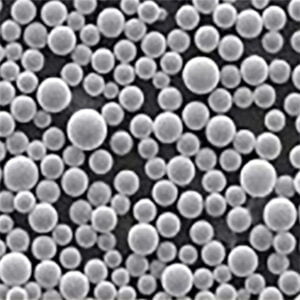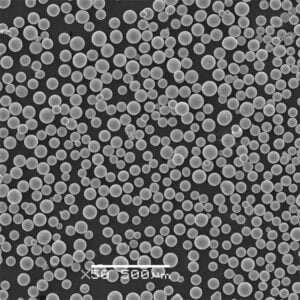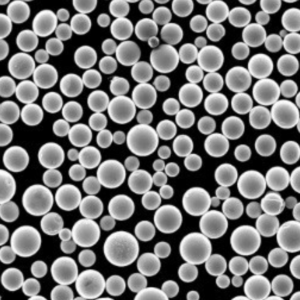in718 metal powder, also known as Inconel 718 powder, is a nickel-based alloy powder used in various high-temperature applications. It offers excellent tensile, fatigue, creep, and rupture strength at high temperatures along with outstanding corrosion and oxidation resistance.
in718 powder can be processed into parts using additive manufacturing techniques like selective laser melting (SLM), electron beam melting (EBM), binder jetting, and direct metal laser sintering (DMLS). This allows complex geometries and lightweight structures to be created for aerospace, automotive, oil and gas, and biomedical industries.
Types of in718 Metal Powder
| Type | Composition | Particle Shape | Size Range (μm) | Apparent Density (g/cm3) | Flowability |
|---|---|---|---|---|---|
| Gas atomized | Ni 53%, Cr 19%, Nb 5%, Fe 18%, Ti 1%, Al 0.5%, C 0.08% max | Spheroidal | 15-45 | 4.2-4.5 | Excellent |
| Plasma atomized | Same as gas atomized | Spheroidal | 10-45 | 4.2-4.5 | Good |
| Water atomized | Same as gas atomized | Irregular | 45-150 | 4.5-5.0 | Fair |
- Gas and plasma atomized powders have spherical powder particles that allow excellent flowability, packing density, and spreadability for additive manufacturing.
- Water atomized powders have more irregular shapes with higher surface oxygen content that can cause issues during printing.
- Smaller powder sizes between 15-45 microns are preferred for better resolution and surface finish. However 10-150 microns can be used based on application.
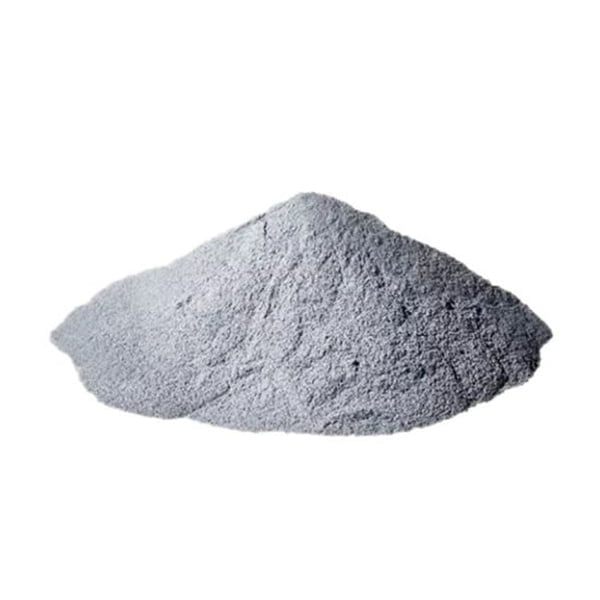
Properties of in718 Metal Powder
| Property | Value |
|---|---|
| Density | 8.19 g/cm3 |
| Melting Point | 1260-1336°C |
| Thermal Conductivity | 11.4 W/mK |
| Specific Heat | 435 J/kgK |
| Tensile Strength | 1275 MPa |
| Yield Strength | 1035 MPa |
| Elongation | 12% |
- High strength is maintained to over 700°C, with insignificant loss up to 980°C
- Excellent corrosion resistance in various aggressive environments up to 900°C
- Resists oxidation in hot gases up to 1000°C through formation of adherent oxide layer
- Retains mechanical properties under sustained loads at temperatures up to 650°C
These properties make in718 suitable for harsh environments in aerospace, energy, automotive and chemical/petrochemical industries.
Applications of in718 Metal Powder
| Industry | Applications |
|---|---|
| Aerospace | Turbine blades, disks, combustors, afterburners, shafts, cases, fasteners, gears, fittings |
| Oil and Gas | Seals, valves, downhole tools, pressure vessels, heat exchangers, fasteners |
| Automotive | Turbocharger components, valves, exhaust components |
| Industrial Gas Turbines | Combustion liners, shrouds, nozzles, heat shields |
| Medical | Orthopedic implants, prosthetics |
| Chemical and Petrochemical | Reformer tubes, heat exchanger components |
- Aircraft engine parts like blades and disks are the largest application area to leverage high-temperature strength
- Oil and gas industry uses in718 for deep sea drilling tools and offshore platform components needing corrosion resistance
- Automotive parts like turbocharger rotors and exhaust manifold studs utilize the heat and wear resistance
- Biomedical sector capitalizes on biocompatibility for long-lasting joint replacements and implants
These diverse applications underline the versatility of properties that in718 powder-based components possess.
Specifications and Standards
| Organization | Designation |
|---|---|
| AMS | AMS 5662, AMS 5699, AMS 5832, AMS 5993 |
| ASME | ASME SB-671 |
| ASTM | ASTM B299, ASTM F3055, ASTM F3056 |
| ISO | ISO 4957 |
| SAE | SAE AMS 2604, SAE AMS 2631 |
These specifications dictate the permissible level of compositions, mechanical properties, product forms, heat treatment procedures, testing methodology and batch/lot traceability required for aerospace, defense and industrial applications.
Suppliers and Pricing
| Supplier | Price Range |
|---|---|
| Sandvik | $$$ |
| Praxair | $$$ |
| LPW Technology | $$ |
| AMC Powders | $ |
- $ = $100-$150/kg, $$ = $150-$250/kg, $$$ = $250-$400/kg
- High performance powders used in critical applications are costlier
- Buyers must evaluate powder properties versus price trade-offs carefully
- Consider qualification status of suppliers per industry specifications
- Request test reports, quality certifications and technical data sheets
- Seek support on part design, printing parameters and quality guidance
So while price is important, the technical sales support and consistent powder quality based on qualifications play a vital role.
Comparative Analysis
| Parameter | in718 | Waspaloy | Haynes 282 | Hastelloy X |
|---|---|---|---|---|
| Cost | Moderate | High | Very high | High |
| Processability | Good | Fair | Poor | Good |
| Thermal fatigue resistance | Excellent | Good | Fair | Poor |
| High temperature tensile strength | Good | Excellent | Excellent | Fair |
| Oxidation resistance | Excellent | Good | Excellent | Excellent |
| Weldability | Fair | Poor | Good | Excellent |
- in718 offers the best balance of capabilities for most applications
- Waspaloy has greater high-temperature strength but lower thermal fatigue life
- Haynes 282 matches strength but has poorer fabrication characteristics
- Hastelloy X has good environmental resistance but lower strength
So in718 provides an optimal combination of strength, fatigue life, oxidation resistance and affordability.
Key Applications Comparison
| Application | Preferred Alloy |
|---|---|
| Aircraft engines | in718, Waspaloy |
| Steam turbines | in718 |
| Oil drilling components | in718, Hastelloy X |
| Aerospace fasteners | Haynes 282, in718 |
| Heat treatment equipment | Hastelloy X |
| Medical implants | in718, Cobalt Chrome |
- For jet engine parts, in718 and Waspaloy are widely used
- Steam turbine blades utilize in718 for thermal fatigue resistance
- Oil industry prefers corrosion resistant grades like in718 and Hastelloy
- Aerospace fasteners use precipitation hardening alloys for strength
- Heat treatment furnaces need exceptional oxidation resistance like Hastelloy X
- Joint implants leverage biocompatibility and high strength of in718 or cobalt chrome
Underlining the high adoption of in718 across the broadest range of high performance applications.
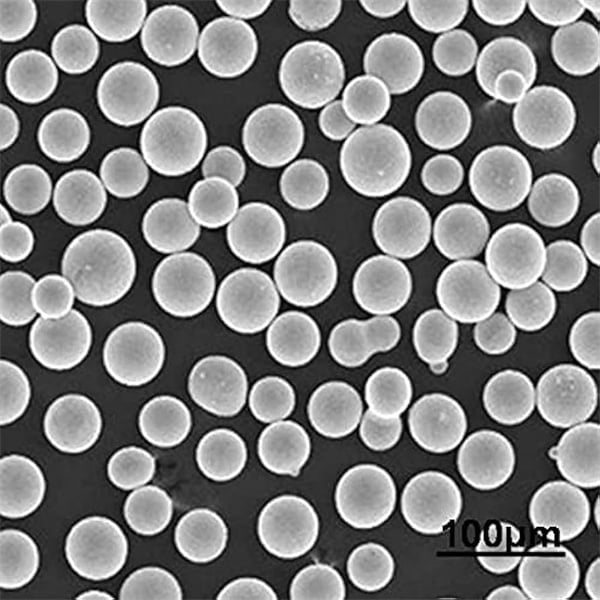
FAQs
| Question | Answer |
|---|---|
| Is in718 printable with a basic desktop SLS 3D printer? | No, in718 requires industrial SLM, DMLS or EBM printers capable of laser powers over 400W to achieve fully dense parts. |
| What are some alternatives to in718 powder? | For high temperature strength, alternatives are Haynes 282, Waspaloy, Rene 41, Hastelloy X. For corrosion resistance, N066 alloys work. For lower cost, stainless steel can sometimes substitute. |
| What post processing is needed on AM in718 components? | Heat treatment including hot isostatic pressing and multi-step aging is applied to enhance ductility and relieve stresses. Additionally, some finish machining or treatments may be used. |
| Is in718 metal powder reusable after additive manufacturing? | Yes, good quality in718 powder can be recovered using powder recycling systems and blended with small percentages of fresh powder for reuse. |
Conclusion
in718 nickel alloy delivers an exceptional balance of high strength retention at elevated temperatures along with excellent long term thermal stability, oxidation and corrosion resistance for the most demanding applications. Additive manufacturing harnesses these intrinsic material merits to fabricate complex lightweight and high-performance metal components.
With rising adoption across aerospace, oil & gas, powergen and automotive sectors driven by its capability matrix, in718 continues to be the workhorse superalloy for 3D printing. Comparing very favorably against alternatives on performance, fabrication and economics – highlighting why in718 is the gold standard powder alloy for mission-critical metal AM parts now and for the foreseeable future.




